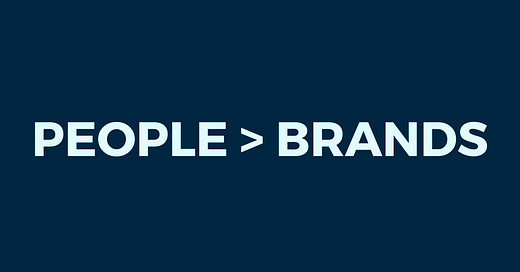Dear Founders, Stop Putting Your Company Brand First
Why business leaders need to focus on building their personal brand and authority if they want to attract their dream customers.
WANT TO LISTEN TO THE AUDIO VERSION? Click below!
Keep reading with a 7-day free trial
Subscribe to Becoming A Better Jones to keep reading this post and get 7 days of free access to the full post archives.


